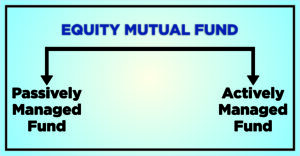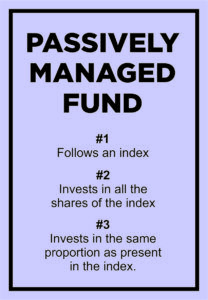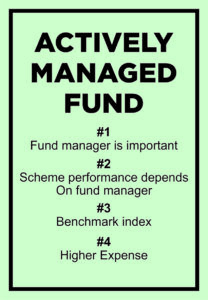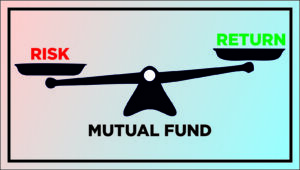For most of us equity funds are synonymous with mutual funds. By now we know they are are a category of mutual funds which invest predominantly in stocks & shares. Infact they are of different kinds and categorised accordingly.
With increasing popularity and retail participation, it is imperative that the prospective investor is able to appreciate this heterogeneity. Past Returns, peer advise, media recommendations dominate our fund selection. Comparisons are often inter-category as most of us are unware of fund categorisation. A peep in to the basics might empower us to choose better.
Equity Mutual funds at the top may be categorised in two broad categories. Passively Managed funds and Actively Managed funds.

 Passively managed funds follow a particular equity index, e.g. Sensex, Nifty, Nifty midcap 150 etc. These fund invests in the same securities as are in the underlying index and in the same proportion as in the respective index. The performance of the fund thus is supposed to mirror the performance of the respective index. Passively Managed funds often referred to as Index Funds have low expense ratios and the role of the fund manager is limited.
Passively managed funds follow a particular equity index, e.g. Sensex, Nifty, Nifty midcap 150 etc. These fund invests in the same securities as are in the underlying index and in the same proportion as in the respective index. The performance of the fund thus is supposed to mirror the performance of the respective index. Passively Managed funds often referred to as Index Funds have low expense ratios and the role of the fund manager is limited.

Actively Managed equity funds on the other hand are fund manager driven. The fund management team based on their expertise and the scheme mandate picks individual securities for the fund. The performance of the fund depends a lot on the fund manager & team. Expenses are comparitively higher than their passively managed counterparts and investors expect higher return in the long-term. Each actively managed fund has a benchmark index with which its performance is evaluated.
The regulator (SEBI), has classified the actively managed funds as equity funds and listed the passively managed funds under “Other Funds”.
SEBI categorises the actively managed funds in eleven separate sub-categories. Each category has a separate investment mandate, inherent risk and potential returns. The investor based on his/her risk appetite, investment horizon and expected returns is expected to select the category. Once the “right category” is identified, only then one should attempt scheme selection from within the category.
If you are satisfied with index returns and wish fund expenses to be low, you may go with a passively managed index funds. If however you wish higher returns than the respective index and you are investing for the long term, you may consider an actively managed fund. While selecting your favourite scheme, portfolio of the scheme, fund manager’s performance, AMC reputation need to be considered. Past performance of the scheme may also be referred to but go beyond just trailing returns and care to know calendar returns, rolling returns along with the risk ratios.

Do appreciate equity is a volatile asset class. Here, potential returns and associated risks go hand-in-hand. Before you invest in any equity fund check your investment horizon and risk appetite. Do remember ratings & rankings are dynamic and may change annually……so might media recommendations. Past performances though often quoted are at best indicative and need to be studied in totality before infering. Understand the category and then proceed to choose your favourite scheme within the category. You need not consider all the listed categories, infact some like sector funds are best handled by experts and are usually tactical calls.
You may check Fund Performances here. Use appropriate filters.
Disclaimer:
- Mutual Fund Investments are Subject to Market Risks. Read All Scheme Related Documents Carefully.
- Sudipta Sengupta is an AMFI Registered Mutual Fund Distributor and not an Investment Advisor.


